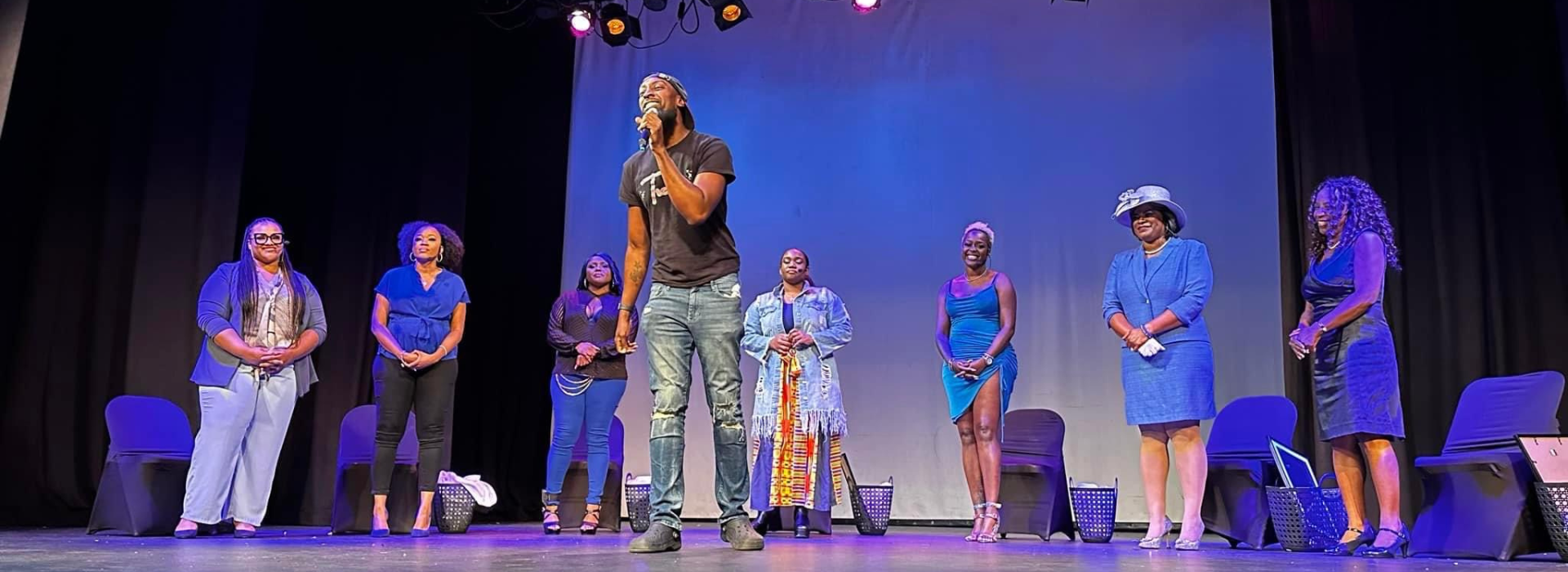A black box theater becomes a beacon in its metro Atlanta community and beyond
February 20, 2024 | By Caroline Morris
As a child, Tre Floyd rarely saw people on television who looked or sounded like him. Most characters played into Black stereotypes that didn’t reflect the people around him — complicated people who had fascinating tales to tell.

So in 2018, the writer-director-actor decided to start telling those stories himself. “I wanted to create authentic Black voices,” Floyd says. “I wanted to write stories that are true to the African American experience.”
He wrote and produced a web series, “Love, Sex & Marriage,” about a closeted gay musician struggling to come out, for his YouTube channel. The videos were such a hit that Floyd decided to adapt it as a stage play in Atlanta. He booked five shows and they sold out. He booked five more. Sold out again.
His experience is borne out by a 2021 McKinsey study showing that while Black talent is often shut out of creative opportunities, and Black stories often undervalued, those stories overperform with audiences. The TV and film industry could reap an additional $10 billion in revenue by working to improve equity in content development, financing, marketing and distribution, the report says.
As Floyd continued writing and producing, he realized there was nowhere within his community for people to regularly see plays like his. So in 2020, he and his sister Aisha Dudley purchased an old office building in Forest Park, a low-income Atlanta suburb, and transformed it into a black box theater called Tre’s Place. The theater’s mission is to give voice to diverse and underrepresented characters through authentic, innovative and real stories.
For Floyd, it became a “jewel in what could be a dark place.” The theater is more than a building; it’s a home in the community. That means showcasing his own plays — like one on Black Lives Matter and another about a Black woman diagnosed with HIV — through his Tre Productions group.
It means setting up a nonprofit called Elevating Voices that goes into local schools to talk to students about different career paths in the arts, offering college scholarships every year to graduating seniors interested in the arts and giving away tickets to neighborhood residents so they can see his productions.
And it also means offering a place for local kids to hang out, even when there’s no play on.
“There’s not a whole lot to do around there, so it’s a way to keep people out of trouble,” says Floyd. “I’d rather them be there and off the street.”
Some of this success stems from the way Floyd tapped into his relationship with Mastercard to keep growing his business. He is participating in Strive USA, led by the Mastercard Center for Inclusive Growth, which collaborated with BeyGood’s Black Parade Route to support small businesses with technical assistance from Our Village United. That gave him access to tools and resources to grow, including Mastercard’s Digital Doors platform and Our Village United’s Elevated curriculum. Through Elevated, for example, he learned how to market shows on the road, which has been invaluable as his play “Black Girl Therapy” tours the U.S. this year.
And the theater even got a facelift courtesy of Mastercard. As one of two Strive USA winners of a Priceless Surprise, Floyd was able to renovate the theater building inside and out. To make the theater even more welcoming, new custom fencing, rocking chair and firepits were adding for pre- and post-show lounging. Inside, the makeover addressed some electricity and HVAC issues and added new flooring, a custom bar, new dressing room and much-needed storage shed.
All of which means Tre’s Place can now sparkle like the jewel it has become to Forest Park and beyond.
Banner photo: Tre Floyd closing out a performance of "Black Girl Therapy." (Photo courtesy of Tre Floyd)